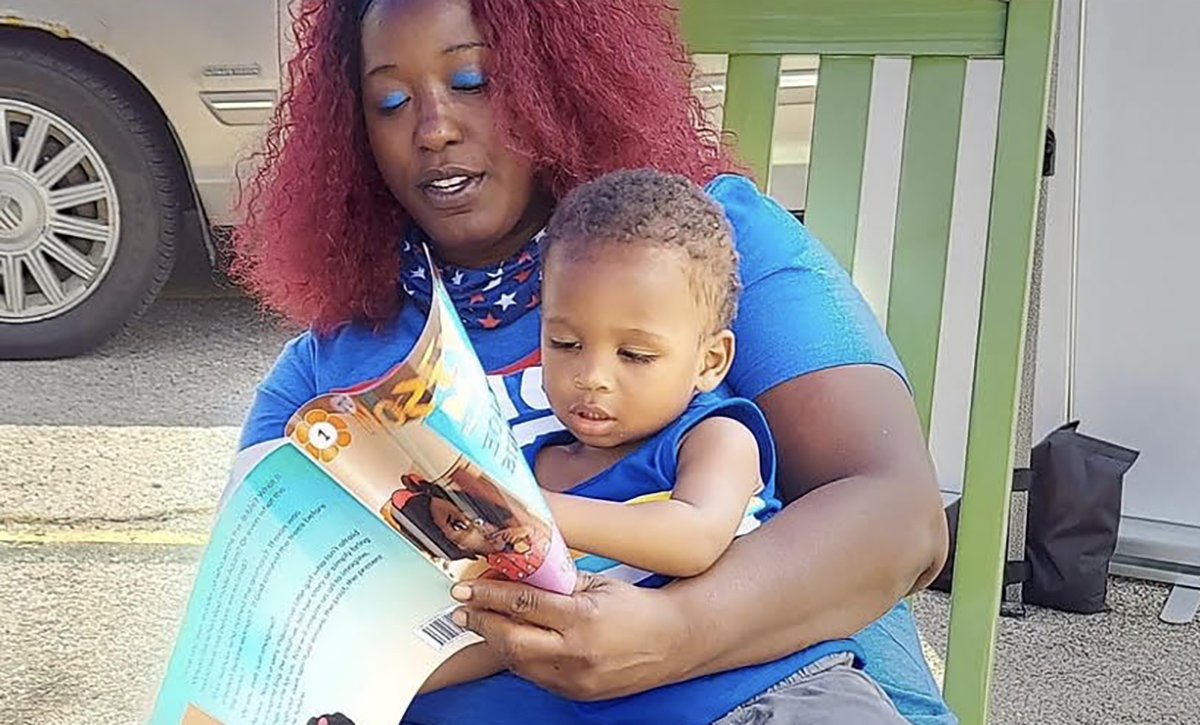Food, With a Side of Reading: Indianapolis Food Pantry Adding Free Library
$2,000 award from The Mind Trust part of an effort to expand literacy throughout the city

Get stories like this delivered straight to your inbox. Sign up for The 74 Newsletter
Four times a week, the waiting room at the St. Vincent de Paul food pantry in Indianapolis is filled. More than 3,000 families use the service, watching TV and letting their children play with donated toys to pass the time until it’s their turn. But starting later this summer, the waiting room will include a free library where children and families can choose books to take home.
The program, created with a $2,000 award from The Mind Trust, is just one part of a grassroots effort to expand literacy throughout the city. The nonprofit’s Go Farther Literacy Fund awarded $50,000 to 18 families, schools and organizations, with amounts ranging from $150 to $5,000.
“Reading has to be ubiquitous,” said Patrick Jones, the Mind Trust’s senior vice president of leadership and equity. “There’s a reading crisis in this country. There’s data around how reading has shifted during the pandemic.”
Indiana Department of Education data from late last year shows that nearly 20% of third-graders aren’t proficient in reading. The literacy gap is also widening, with students of color, as well as low-income and English learners, falling further behind white children.
In addition, children around the country just aren’t reading for fun anymore — levels are at their lowest since the National Assessment of Educational Progress started polling kids in 1984. Only 42% of 9-year-olds reported reading for pleasure every day, according to NAEP’s 2020 survey, which was completed before the pandemic.
St. Vincent de Paul Philanthropy Director Wendy Harlow said volunteer Julie Reyes alerted the group to the Mind Trust fund and urged the ministry to apply. Although the organization is linked with the Archdiocese of Indianapolis, it is not religious and operates purely as a nonprofit, Harlow said.
Though the group’s two Indianapolis thrift stores accept donations of children’s books, they don’t have an organized process for giving them away, she added. The money from The Mind Trust will allow St. Vincent to buy books specifically for families that use its food pantry.
The book corner will include works by authors of color, Spanish-language texts and titles that appeal to the nonprofit’s large Haitian and Creole populations, Harlow said.
Pairing literacy with a food pantry is a “fabulous” idea that should work well, said Diane Tracey, a literacy specialist and author of the book Helping Your Child Overcome Reading Challenges. “Collaborations between organizations who are different in their initial intentions can be super effective,” she said, suggesting pediatricians’ offices and churches as other good locations.
“This is the way into families’ homes,” Tracey said, as small programs that reach people in ways that they feel comfortable help “signify the importance of reading.” She suggested encouraging families at the pantry to sign up for a library card to continue to boost children’s literacy.
This is the literacy fund’s second year, and results from the initial set of awardees have been impressive, Jones said — 80% of the 515 students from the program’s first year reported reading at least 20 minutes per day.
“The home and community structure is the most powerful structure we’ve seen,” Jones said. “We know that grandmothers, aunties and uncles are frequently children’s first teachers.”
The program is modeled after The People’s Literacy Fund program from Oakland’s Energy Convertors, Jones said. Oakland’s program gives up to $5,000 in mini-grants to parents, students and community members and expects ultimately to hand out $100,000, according to the program’s website.
Other awards from The Mind Trust will allow city residents to set up community lending libraries and start a speech and debate team. And one $5,000 endowment will enable a group of nine mothers who call themselves the Mamas of Indianapolis Melanated Boys to create a 10-week immersion program aiming to boost literacy skills, social-emotional development and academic success.
Disclosure: The Mind Trust provides financial support to The 74.
Get stories like these delivered straight to your inbox. Sign up for The 74 Newsletter

;)